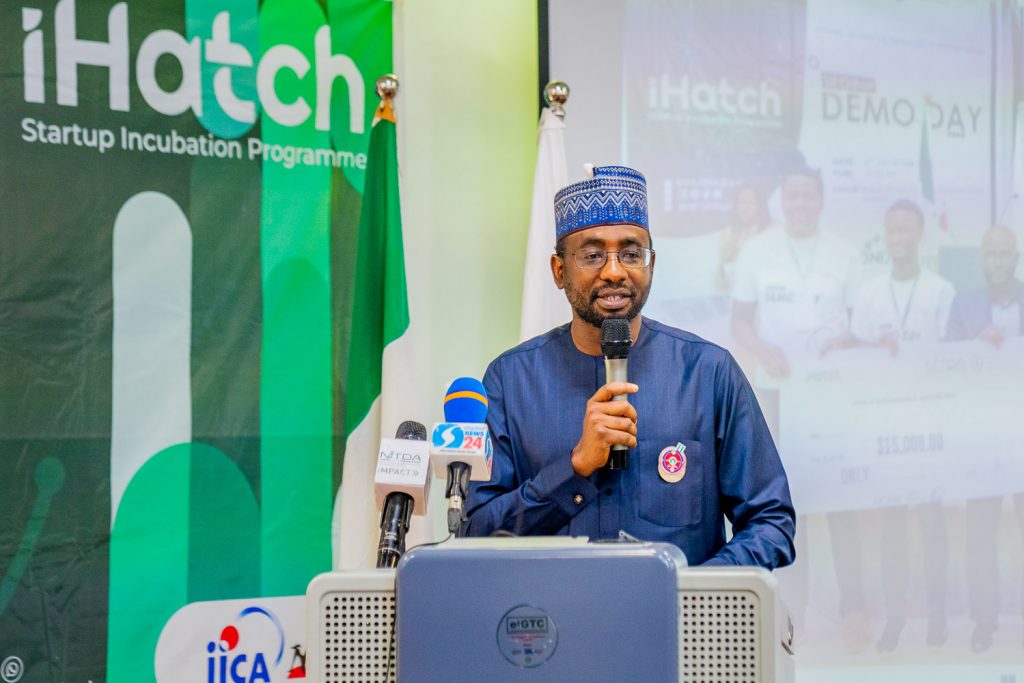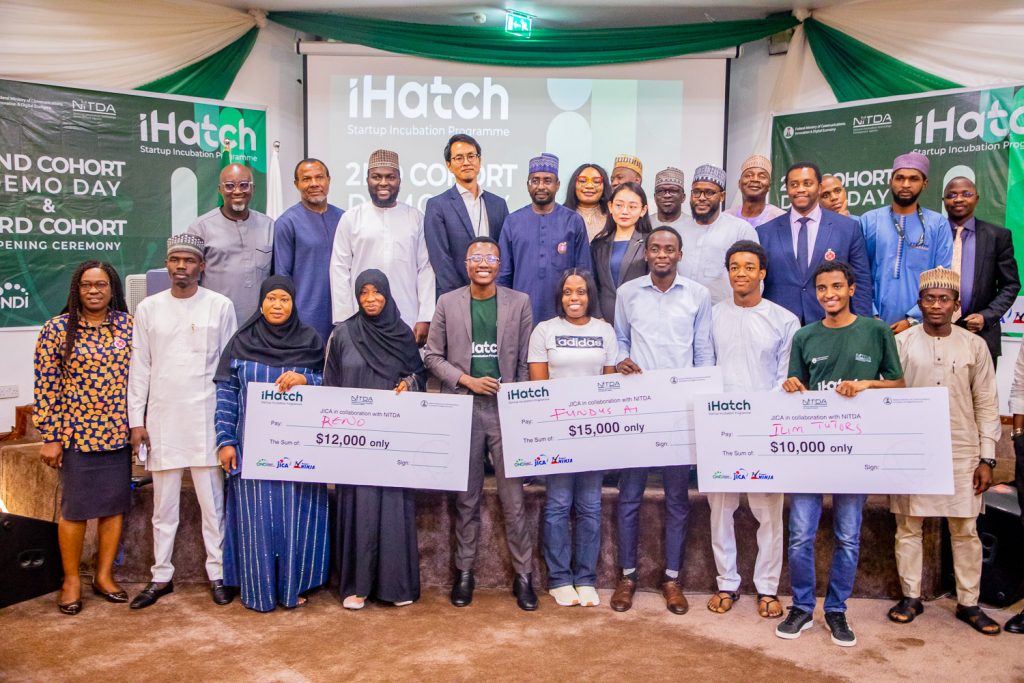Opinion
X-raying Buhari’s 3-year Infrastructure Development Drive
Published
5 years agoon

The coming on board of President Muhammadu Buhari’s administration in 2015 saw the merger of three key infrastructure ministries into a mega ministry known as the Ministry of Power, Works and Housing, with the mandate of facilitating the sectors’ development. In this review, PREMIER x-ray the progress so far recorded within the three years of Buhari’s stewardship.
Following his swearing in on the 29th May, 2015, President Muhammadu Buhari while delivering his inaugural speech, stated clearly that his administration would focus on the economy, fight against corruption, and provision of security. And under the economic reform programmes rolled out, the development of infrastructure, which was identified as a major vehicle through which any sustainable economic development can be achieved, was prioritised.
This must have informed the premium placed on the three economically key sectors of power, works and housing by Mr President to provide basic infrastructure and service needed to accelerate social and economic developments in the country.
On appointing and inaugurating his cabinet, the Hon. Minister of Power, Works and Housing, Barr. Babatunde Fashola assumed duty On 10th November, 2015 with a glowing zeal to tackle the underdevelopment challenges that have bedeviled these sectors largely due to neglect by successive administrations in decades.
Presenting the scorecard of his three years stewardship as the ‘Chief Servant’ of the ministry on 12 November, 2018, Fashola stressed that the ministry under his watch had fulfilled at least to a greater extend the campaign promises of Mr. President regarding infrastructure. The Super Minister, as he is fondly called, recalled that shortly after his inauguration and specifically on the 8th day of December, 2015, he prefigured what members of the public should expect in a statement titled “Setting the Agenda for Delivering Change” in which he set out what they inherited, what they planned to do, and what members of the public should expect thus:
“For the sake of consistency, let me refresh your memories by repeating some of what I said about each sector, as a benchmark for assessing our progress in the report which I will present shortly. With regard to our mandate on power supply, I promised that we will improve on the gas supply, increase the transmission capacity, pay MDA debts and generally improve your experience with power supply, first by getting incremental power, then proceed to stable power and hopefully reach uninterrupted power.
“With regard to works, I said as at May 2015, many contractors have stopped work because of payment and many fathers and wives employed by them have been laid off as a result. The possibility to return those who have just lost their jobs back to work is the kind of change that we expect to see.
‘‘And with regard to Housing, I said the Housing Sector presents an enormous opportunity for positively impacting the economy to promote not only growth but inclusion. I also said that government will lead the aggressive intervention to increase supply” starting with a pilot scheme,” he said, adding that virtually all that have been achieved going by what the government has achieved within the short three years that the administration has been striving to meet the yearnings of Nigerians infrastructurally.
Details of what has been achieved in each sector in the last three years were given in the Minister’s speech.
Road Sector (Works)
The Nigerian road sector no doubt may have witnessed unprecedented improvement going by the record of on-going and completed highway and bridge projects that cut across the 36 states and the FCT in the last three years that the present government boldly made known its intention to upgrade the country’s infrastructure which hitherto have been in utter decay.
When the Hon. Minister of Power, Works and Housing, Babatunde Fashola presented to the public a sketch of the achievement of the Buhari-led government regarding road rehabilitation, construction and maintenance, it became clear to many Nigerians that the government has been on its toe in a bid to deliver on its promises of revamping the country’s infrastructure as a gateway to sustainable socio-economic development.
When the Minister assumed office in November, 2015, the lamentation was that the ministry inherited about 206 road projects across the country, most of which were abandoned by the contractors mainly for lack of fund, and in a few cases, insecurity, with the attendant loss of jobs by thousands who were engaged and earning their living from those contracts. However, while presenting the scorecard of the 3 years, the Minister affirmed that contractors have since been mobilised back to the sites while thousands of job lost in the course of abandoning the projects have been recovered.
He explains: “We have recovered the thousands of jobs that were lost to public works.
“This recovery is the result of an expansive infrastructure spending that saw works budget grow from N18.132b in 2015 to N394b in 2018.
“The outcome is that there is not one state in Nigeria today where the Federal Government is not executing at least one road project and construction workers are engaged on these sites.
“Difficult or abandoned projects like the 2nd Niger Bridge, Lagos-Ibadan Expressway and the Bodo-Bonny Bridge have been brought back to life.
“Sections of Ilorin-Jebba, Sokoto to Jega, Sokoto-Ilela have been completed, while progress of works continues nationwide from Jada to Mayo Belwa, Enugu to Port Harcourt, Lagos to Otta, Ikorodu to Shagamu, Benin to Okene, Lokoja to Abuja, Kano to Maiduguri, Abuja – Kaduna, Kano to mention a few.
“Apart from recovered construction jobs and growth in construction sector of the economy, the feedback from road users is that the journey times are reducing on the completed roads. This is what we promised in my inaugural address.
“We acknowledge that the work is not finished, but as long as we remain able to finance the projects, I have no doubt that it will get better.”
‘‘The intervention on roads, as made clear by the ‘infrastructure’ Minister, does not stop on interstate highways. It has also entered 14 Federal Universities where unattended internal roads are now receiving attention.
The universities include: University of Nigeria, Nsukka; Federal University Oye, Ekiti; University of Benin; Federal University, Lafia; Fed University, Otuoke Bayelsa; Bayero University Kano; Federal University of Technology Owerri (FUTO); University of Maiduguri; Federal University, Lokoja; Federal Polytechnic Bauchi; Federal University, Gashua; Kaduna Polytechnic; Federal College of Education Katsina; and University College Ibadan’’.
“This is the First Phase under the 2017 Budget and we are preparing to do more under the 2018 Budget,” the Minister noted.
He also stated that even as rehabilitation and reconstruction works were on-going, maintenance of existing roads and bridges was not left to suffer.
“As we build roads, we are also attending to old or damaged bridges and restoring the value of maintenance.
“So, while the Loko -Oweto Bridge is nearing completion, the damaged Tatabu Bridge linking Ilorin and Jebba has been reconstructed and the Tamburawa Bridge in Kano, the Isaac Boro Bridge in Rivers, Eko Bridge in Lagos and the Old Niger Bridge that links Anambra and Delta are receiving regular maintenance attention,” he said.
Also during the briefing, the Ministry also gave statistics of road projects in the last three years. It said in 2016, 277 kilometres of road was constructed, 345km was rehabilitated and 17,749 people were employed in the process.
For 2017, the federal government constructed 488 roads, rehabilitated 256 others and engaged 31,227 persons. For 2018 till November, 497km of road has been constructed, 284 rehabilitated and 30,402 persons employed.
Expatiating on this, the Permanent Secretary (Works and Housing), Mr Mohammed Bukar said there have been award of 365 roads for construction since 2001. He said the Buhari government awarded 121 of these in three years while the previous government awarded 144 others in the whole of 17 years.
“You will see that out of the 365 roads, 144 were awarded in the period of 17 years while in just three years, we awarded 121 roads, just within three years and we are still counting because the 2018 procurement is on-going,” Bukar noted.
On the N206bn 2nd Niger Bridge being funded by the Nigerian Sovereign Investment Authority (NSIA), the ministry said about N31bn has been given to Julius Berger as advance which resulted in the significant record of pillars erected on site as the project is expected to be completed in 36 months.
Housing Sector
Section 43 of the 1999 Constitution of Federal Republic of Nigeria recognises the right of every citizen in Nigeria to own property, especially land and its resources.
Also, access to livable, safe and secured shelter is a fundamental human right as enshrined in Article 25 of the Universal Declaration of Human Rights and the Universal Declaration of Human Rights and International Covenant on Economic, Social and Cultural Rights.
Given that low income earners constituted over 80 percent of Nigeria’s active workforce, federal government needed to strike a balance between affordable housing for low income cadre and housing for selected Nigerians.
Currently, Nigeria is challenged with over 18 million housing shortfall despite the large number of completed and unoccupied houses dotting the landscape of major states in Nigeria.
To this end, the administration of President Muhammadu Buhari initiated and commenced the pilot phase of the National Housing Programme (NHP) in 34 states including the Federal Capital Territory (FCT), with the exemption of Lagos and Rivers states whose governors failed to donate land for the project.
The two agencies, Federal Housing Authority (FHA) and Federal Mortgage Bank of Nigeria (FMBN) under the ministry are also pushing for the provision of affordable housing to workers as seen in various projects and programmes.
The pilot phase of the NHP is directly executed by the federal government through the federal ministry of power, works and housing (housing sector).
The private sector may likely participate in the second phase depending on the acceptability of the designs by intending off-takers.
Premier Newspaper findings highlighted that the sum of N35 billion was budgeted for the project in 2016, about N41 billion from the N64.9 billion budgeted for capital spending in the housing sector 2017 budget was set aside for the project while in 2018, N35 billion was also budgeted for the project.
The essence of the project is to provide affordable homes for low income earners.
To achieve this objective, state governments and Federal Capital Territory (FCT) were asked to provide suitable lands on January, 2016 in their state capitals and municipal council areas.
The houses which are at various stages comprise of 1 bedroom, 2 bedroom and 3 bedroom semi-detached bungalows.
The NHP expected to add 2,736 units to the national housing stock, has provided about 13,680 direct jobs and 41,000 indirect jobs according to the Minister of Power, Works and Housing, Mr Babatunde Raji Fashola.
In order to eliminate issues bordering on abandoned projects and shoddy job, the former minister of state II for Power, Works and Housing, Mr Suleiman Zarma, accompanied by staff and media team embarked on massive inspection of federal government projects in Nasarawa, Benue, Plateau as well as other states.
Zarma disclosed that the aim of NHP is to build communities that would integrate with one another both within and around the estates.
Federal Housing Authority (FHA)
The preparation for Abuja Mass housing project, Zuba started in the second half of 2017 following the release of N5 billion from the federal government.
All technical documentations were done and the first phases of the award were carried out in February 2018 through selective tendering process while subsequent awards were done through open tendering process.
The Zuba project was initially planned for 16 nos 3 bedroom blocks of 8 flats, 25 nos 2 bedroom block of 8 flats, 10 nos 1 bedroom block of 16 flats and 5 nos 3 bedroom block of terrace duplex of 4 units, with a total of 508 housing units.
The Kwali mass housing site is another project undertaken by FHA to boost affordable housing.
Located at the Lambata, behind federal government college Kwali, it is a 305 hectares of land given to FHA under the Abuja Mass Housing Programme.
The Kwali project consisted of 12 blocks of I bedroom flat (192) and 8 blocks of 2 bedroom flat (64).
Contracts were awarded for the development of phase 1 of the land in May 2018 but due to conflicts in payment of compensation and poor weather conditions like rainfall, the project was relocated to Zuba as approved by FHA board.
With the relocation of 256 units from Kwali site, the project, expected to roll out 754 houses for off-takers comprising of civil servants and informal sectors has gulped the sum of N6.62 billion already.
The entire estate covers over 2.6 kilometres of 7m carriageway road with trapedozial drain.
Over N10 billion would be spent on the project upon completion and it is expected to be commissioned by President Muhammadu Buhari by the beginning of the second quarter in 2019.
Managing director of FHA, Prof Mohammed Al-amin, stated that many jobs have been created at the site which absorbed the services of skilled and semi-skilled labourers.
He noted that the idea is in line with President Muhammadu Buhari’s vision of creating jobs and wealth for Nigerians, stating that 35 percent of the houses have been sold to interested Nigerians.
Al-amin maintained that its Gombe mass housing project was completed in 2018 and sold out through the Federal Integrated Staff Housing (FISH) scheme anchored by head of service while payment was made to FHA through the National Housing Fund (NHF) managed by Federal Mortgage Bank of Nigeria (FMBN).
Al-amin hinted that the phase 1 of its Oshogbo project was completed and handed over to off-takers, noting that all elements of corruption and indiscipline would be eliminated from FHA.
He pointed out that the work progress was hindered due to the presence of some structures on the roadways and inaccessibility of some roads due to undefined boundaries with some adjoining public institutions like the LEA primary school.
He further advocated the increase for the agency’s budgetary allocation from N5 billion to N 50 billion, stating that it would create more jobs and circulate wealth for many Nigerians.
Senate Committee on Lands, Housing and Urban Development led by its chairman, Sen Barnabas Gemade and other members visited the site to access the level of work done.
Gemade was satisfied that the committee took the right decision at the parliament to integrate the FHA into the national housing scheme, noting that it is one of the most advanced stages of national housing projects around the country.
He assured that the committee would look into the request made by Al-amin to raise the agency’s budget to N50bn, which he described as ambitious.
Gemade commended the management of FHA in its efforts towards the re-birth of the agency, adding that the agency was almost going into extinction since 2002.
He kicked against constant bickering and numerous petitions received by the committee from disgruntled staff and contractors, noting that the notion that over 90 percent of contractors handling FHA projects must be members of staff is wrong and must stop henceforth.
Federal Mortgage Bank of Nigeria (FMBN)
The Federal Mortgage Bank of Nigeria (FMBN) has played a crucial role in providing shelter and loans for workers across the states.
The bank in partnership with the Nigeria Labour Congress (NLC), Trade Union Congress (NUC), and Nigeria Employers Consultative Association (NECA) commenced the construction of 1,400 affordable housing units for workers nationwide last year.
The Nasarawa and Kogi housing sites were the first of the fourteen locations to be used as the pilot phase of the programme, with 200 housing units expected to be constructed in each of the six geopolitical zones in addition to Lagos and Abuja.
The housing scheme is a product of strategic collaboration between FMBN and labour unions towards addressing the housing needs of its members estimated at 3.75million units.
The first phase of 100 housing units each in Kogi and Nasawara states were projected to be completed within six months.
The house types captured proven social housing models, comprising of one bedroom, two-bedroom and three-bedroom units, with prices ranging from N3.1 million to N8.3 million.
Also, the bank has expended N2.8 billion in the construction of 985 housing units in Enugu State for Nigerian workers contributing to the National Housing Fund (NHF) under the National Affordable Housing Delivery Programme (NAHDEP).
The FMBN has so far disbursed housing loans totaling N40.9 billion to 1,843 contributors, provision of home renovation loans totaling N14.072billion to 16,031 Nigerian workers, processing of N12.4billion refunds to contributors to NHF and registration of 224,752 workers to the fund.
Other innovative products undertaken by the bank include the rent-to-own scheme, where contributors could own a home and pay monthly or yearly rents over a 30-year period as well as the NHF individual housing construction loans that are payable over a 15-year period at interest rates of 7 percent.
Another notable effort is the reduction of equity contribution for accessing NHF loans to zero percent for N5m and below as well as 10 percent for N15 million and above.
The unveiling of FMBN digital platform code *219# for National Housing Fund (NHF) contributors was also a strategic move aimed at improving access to home ownership for workers.
The managing director/chief executive officer of FMBN, Arc Ahmed Musa Dangiwa, said it is the first time the bank and labour unions have synergised with stakeholders to develop a realistic and acceptable framework for delivering affordable housing to workers.
According to him, “The collaborative spirit provided an opportunity for labour leaders who understand the financial challenges faced by workers to make constructive inputs to the designs, pricing range and other relevant conditions for delivering the project”.
Dangiwa disclosed that the programme is targeted at shrinking the national housing deficit estimated at over 22 million units, stressing that the project is a departure from earlier social housing projects that was executed without considering the economic realities of the workers.
Also, the president of NLC, Comrade Ayuba Wabba commended the FMBN for boosting the partnership, noting that the project is laudable and would touch the lives of many Nigerians.
Ayuba lauded the Nasarawa state government for speedily providing land at zero cost, saying that the state workers contributing NHF would be excited with the project.
Family Homes Fund (FHF)
The Family Homes Fund (FHF) is another housing project domiciled in the office of the Vice President, Prof Yomi Osinbajo.
Through the fund, the presidency is expected to invest about N500 billion in five years for the construction of social and affordable housing.
The Special Adviser to the President on Economic Matters, Mr Adeyemi Dipeolu, hinted that government would release N100 billion yearly for the next five years to FHF with the intention of leveraging N1 trillion from the private sector.
Dipeolu confirmed that the money is meant for the construction of affordable housing, adding that Nigerians earning N30, 000 could buy houses through the FHF.
He emphasised that some houses had been completed in Nassarawa state while about 3,000 to 6,000 are under construction across the country.
Power Sector
According to reports from the Ministry, power generation was at 4,000 megawatts (MW) in when the present administration took over in May, 2015. Recent reports say it has increased to over 8,200 MW and transmission from 5,000 MW in 2015 to 7,000 MW while distribution has increased from 2,690 MW to 5,222 MW.
Despite the increase already recorded, Fashola emphatically stated that the work was clearly not finished, stressing that the Ministry was still in the process of delivering additional power to the grid.
According to him, the additional 215MW would come from the Kaduna Power Plant while 240MW would come from Afam IV, 40 MW from Kashimbila, 30 MW from Gurara, 29 MW from Dadin Kowa and a total of 3,750 MW from two big Hydro power plants in Zungeru (700MW) and Mambilla (3,050MW) while power is also programmed for nine universities and 15 markets across the country.
Also expected transmission expansion from 90 transmission projects nationwide to boost the capacities of the Distribution Companies to distribute power across the country, the Minister said adding that some of the transmission substations recently completed included Apo, Mayo Belwa, Damaturu, Maiduguri, Odogunyan and Ejigbo substations.
On distribution, the Minister explained that the sub sector is being boosted through over 100 injection sub-stations, a distribution expansion programme to be funded by the Federal Government. To this end, the government recently announced the approval of N72 billion distribution expansion program which is being implemented by the transmission company of Nigeria (TCN) in conjunction with the ministry.
While the Minister agreed that there are still much to do to give the consumer the best experience, he noted that the challenges posed by disruptions from time to time and people who also needed meters remain valid but stressed that, “it is indisputable that we have delivered on incremental power”.
Supporting his points with data, the Minister, recently quoted the 3rd Quarter 2018 report of the National Bureau of Statistics as revealing that Electricity made the highest contribution of 18 per cent to the 1.8 per cent growth in the nation’s Gross Domestic Product (GDP). He added that previous quarterly reports from 2017 had consistently recorded growth, which, he noted “is a clear departure from 2014-2015 and proof of change”.
On rural electrification as it relates to deploying Solar Power, Fashola while speaking at an interactive section recently recalled the “Thank You” visit of the Gora Community of Nasarawa State to his office to express their gratitude to the Federal Government over the provision of Solar Power to their Community saying it was a testimony to the growth in electricity supply and increasing accessibility to the rural communities.
The Community delegation, led by its Traditional Head, Alhaji Jafaru Adamu, thanked the government of President Muhammadu Buhari for initiating the rural electrification programme and the Minister for driving it adding that since the installation of the Solar electricity, the Community has consistently enjoyed several benefits hitherto not known to them, especially in the areas of social life, education and health.
Arguing against the reversal of the privatisation policy in that forum, Fashola, reiterated the existence of challenges in the sector which, but assured they were being dealt with.
He declared, “But you must decide in this country whether you want to continue to see devils or angels. I like to see angels; my glass is always half full and problems are opportunities for me to show that nothing is wrong with us and to benchmark what I have achieved. There are problems no doubt and we must deal with them”.
Speaking further on policy, he said as the policies on Mini Grids, Meter Asset Provider, Eligible Customer, and liquidity sustenance and improved governance deepen, the experience with power supply could only get better adding, however, that the success of the plans now would depend on “energy users who must conserve energy when not needed”.
Whatever your perspective may be the Minister is certain that the ordinary Nigerians now have course to say progress has been made in the power sector’’.
This is evident when he said, “As some citizens recently reported, they no longer have to iron all their clothes one week in advance as they previously used to do, because the supply is proving reliable and predictable even if not yet fully stable and uninterrupted. This is progress that we must move forward by consolidating on our mandate of change. We cannot go back”, the Minister declared.
These achievements in relatively shorter time may have triggered the Minister’s emotive bulk passing statement while fielding questions at the briefing on the poor road networks in the country. Fashola who admitted it said, “Yes, we know they are bad. There is no magic to it. If those who came before us had done their work, we won’t meet bad roads. That is the simple truth.
“We earned $100 per barrel of crude oil for about five years. We knew what other countries like Abu Dhabi (UAE), and Saudi Arabia did with their own. What did we do with ours? This is a President and a government that is now trying to do more with the less that it has. So give us some time, we will get there.
You may like
-


Osinbajo Has Betrayed Yorubas, Says Afenifere
-


APC Said Stone Us If We Fail After Two Years
-
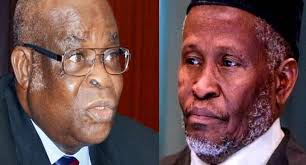

NJC Sets Up Panel To Probe Onnoghen, Acting CJN
-
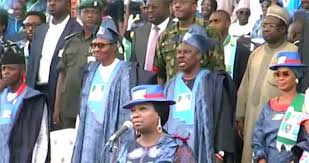

Oshiomhole Pelted With Stones, As Security Men Shield Buhari At Ogun Rally
-


Amosun Campaigns For Both APC And APM At Buhari’s Campaign Rally
-


Buhari Expresses Hope In Resolving Zamfara APC Crisis
Opinion
NiMet’s Renewed Collaboration With Agriculture Ministry Is Good For The Nigerian Economy
Published
2 weeks agoon
May 6, 2024NiMet’s Renewed Collaboration With Agriculture Ministry Is Good For The Nigerian Economy
By Dr. Uche Nworah
The Federal Ministry of Agriculture and Food Security is a Ministry of the Federal Government of Nigeria that has the mandate to ensure food security in crop, livestock and fisheries.
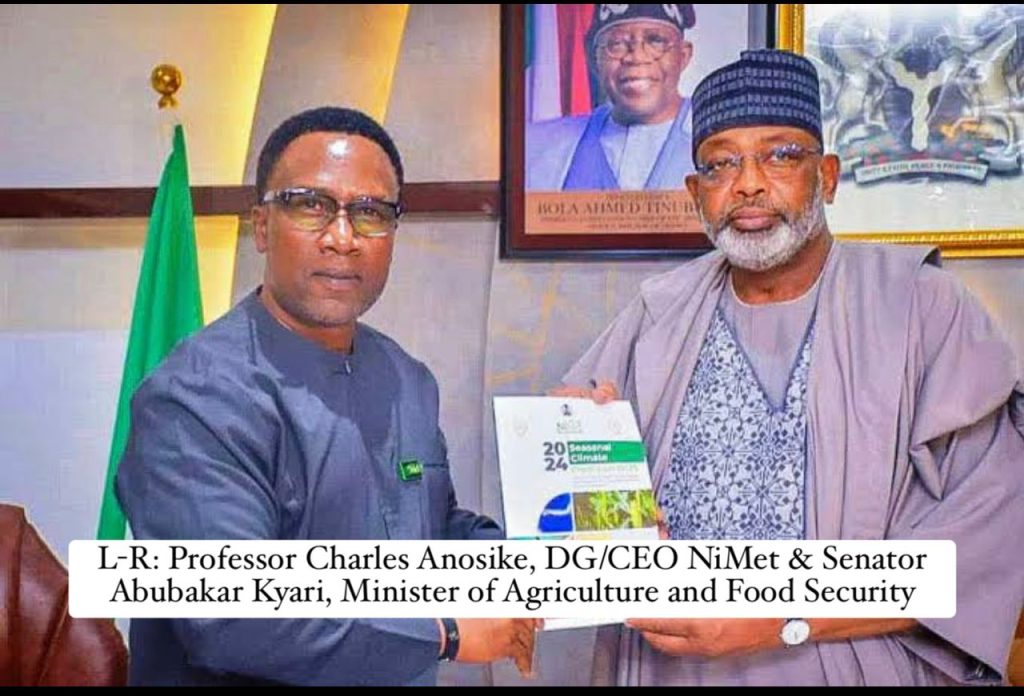
The ministry is also tasked to stimulate agricultural employment and services, promote the production and supply of raw materials to Agro- allied industries, provide markets for the products of the industrial sector, generate foreign exchange and aid rural socio-economic development throughout Nigeria.
The Nigerian Meteorological Agency (NiMet), is a Federal Government of Nigeria agency charged with the responsibility to advise the Federal Government on all aspects of meteorology. NiMet is also tasked to project, prepare and interpret government policy in the field of meteorology; and to issue weather (and climate) forecasts for the safe operations of aircrafts, ocean going vessels and oil rigs.
The Nigerian Meteorological Agency (NiMet), and the Federal Ministry of Agriculture and Food Security have in the past made moves to strengthen their existing relationship towards improving agricultural production and food security in Nigeria. The Ministry and NiMet had signed an MoU on the 3rd of March, 2022, to collaborate in a lot of areas including development of a dash-board for early warning systems, capacity building for staff of the Ministry and other stakeholders on accessing and interpreting information on meteorological parameter changes, and the provision of agro-meteorological advisory services to farmers on specific agricultural commodities. It would seem as if things quietened down after the MoU was signed.
However, at a joint press briefing on NiMet’s 2024 Seasonal Climate Prediction (SCP), at the instance of the Honourable Minister of Agriculture and Food Security, Senator Abubakar Kyari, on Tuesday, 16th April, 2024, the Honourable Minister and the Director General, Chief Executive Officer of NiMet, and Nigeria’s permanent representative with World Meteorological Organization (WMO), Professor Charles Anosike, resolved to strengthen the relationship and make it stronger. The Honourable Minister said at the press briefing; “Your presence here today, at our headquarters, marks another milestone in the deliberate and desirable collaboration and co-operation between our Ministry and your agency. Over the years, critical sectors of the economy, such as aviation, maritime, and agriculture, have come to rely on the Seasonal Climate Prediction published by NiMeT usually in the first quarter of the year. The reliability of the Seasonal Climate Prediction is indicated by increased recourse to the weather advisories contained therein”.
The Honourable Minister also said that NIMET’s Seasonal Climate Prediction can assist in shaping agriculture in Nigeria with regard to information about the pattern and duration of rainfall across the country’s agronomic zones, when to grow and length of growing season, as well as dry spells that could occasion loss of agricultural investment, where remedial measures are not taken. This in turn helps to boost the adaptive capacity of farmers. Regrettably, there have been farming seasons in Nigeria when farmers did not take advantage of the institutional advice from NIMET, and on their own misread the rainfall pattern, only to face dry spells that invariably ruined their crops and livelihoods.
In his remarks, Professor Anosike thanked the Honourable Minister for his leadership and the kind gesture to strengthen the relationship between NiMet and the ministry. “NiMet wishes to build on the database of farmers that the ministry has. Already NiMet disseminates information about seasonal climate prediction through formal engagements with farmers , and through the media such as the BBC, social media, Radio Nigeria and through national television stations.
However, a lot of gaps still exist within the dissemination space. Our goal is to reach as many Nigerians as possible with timely, accurate and actionable weather and climate information as part of NiMet Early Warning Drive”
Continuing, Professor Anosike said; “Food security requires consistent collaboration with all stakeholders. The SCP as predicted are being manifested but the challenge remains disseminating the contents to over 70 million farmers in Nigeria. Farmers need to be equipped with information and other resources to make climate resilient decisions”.
It is noteworthy and encouraging that weeks after the joint press briefing between the Federal Ministry of Agriculture and Food Security and NiMet, there are evidences of the renewed collaboration. This is positive and will benefit the Nigerian economy. Knowledge is power and if Nigerian farmers have weather and climate information translated in their local languages, they will be able to make climate resilient decisions such as knowing when to plant, what species of plants and seeds to plant and when to harvest to achieve greater yield.
The 2024 Seasonal Climate Prediction (SCP) released by NiMet provides an outlook of climate variables to help improve decision-making across all sectors of the economy. NiMet’s SCP for 2024 which was originally released in February 2024, forecasts normal on-set of rains over the northern states.Borno, Abia and Akwa Ibom states are predicted to have early on- sets. An early end to the season is predicted for parts of Yobe, Jigawa, Sokoto, Kebbi, Kano, Kaduna, Plateau, Nasarawa, Taraba, Gombe, Bauchi, Cross River, Ebonyi, Ogun and Lagos states.
A late secession is predicted over the southern states of Bayelsa, Rivers, Akwa Ibom, Ondo, Ekiti and part of Edo, Delta, Ogun, Oyo, Kogi, Kwara, FCT, Niger and Kaduna states.
Day and Night time temperatures for January to May is predicted to be warmer than normal in most parts of the country. Also, most of the North is anticipated to be cooler in March.
The Ministry and NiMet have re-intensified efforts at disseminating NiMet’s seasonal climate prediction (SCP), using FRCN network service, local radio, local and national press, national and local television. They are also using social media platforms. Applying the multi-step information flow model will require social media savvy stakeholders picking up the information online and sharing same to the farmers in their various communities.
A critical aspect of the dissemination is the physical downscaling of the SCP information to farmers in the various communities. This will require the support of the various states ministries of agriculture and NGOs operating in the agricultural space. They should support current downscaling efforts by the ministry and NiMet. From the schedule released by the Federal Ministry of Agriculture and Food Security, and NiMet, downscaling of SCP information to farmers in the six geopolitical zones have been scheduled as follows; Ondo (13th May), Imo (15th May), Delta (17th May), Niger (22nd May), Sokoto (4th June) and Borno (6th June). Farmers, civil society organizations, states ministries of agriculture, the media and other stakeholders can help in sensitizing the farmers to attend on the dates stated for their zones.
This initiative by the two MDAs is viewed as a positive step towards enhancing food security in Nigeria. It will empower our farmers, and has the capacity to mitigate the perennial challenges of climate variability. It will at the same time contribute towards sustainable resilience in the agricultural value chain.
The full SCP report can be downloaded from www.nimet.gov.ng. The report is also available from the Federal Ministry of Agriculture And Food Security Abuja, and State Ministries of Agriculture.
Dr. Nworah, a public affairs commentator wrote from Lagos.
Opinion
America, Iran and the abuse of democracy, human rights, by Hassan Gimba
Published
2 weeks agoon
May 6, 2024America, Iran and the abuse of democracy, human rights, by Hassan Gimba
“One of the shrewdest ways for human predators to conquer their stronger victims is to convince them steadily with propaganda that they are still free.” N. A. Scott, American author.
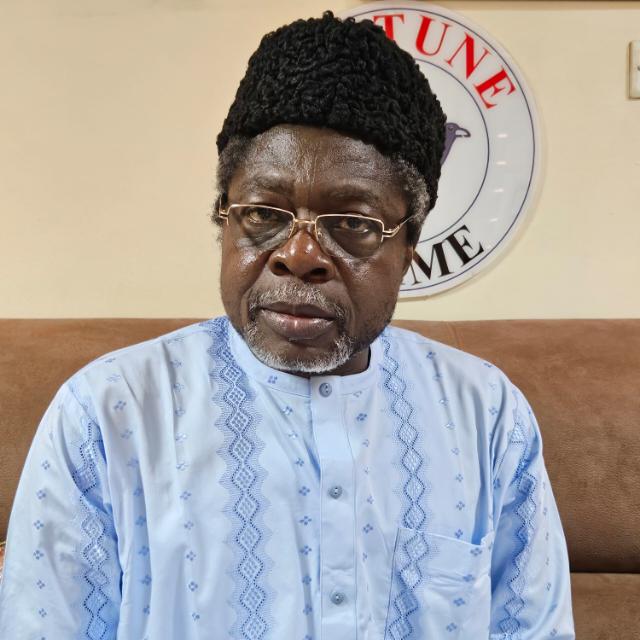
Every human being currently living on earth came to this world and saw the United States of America posing as the cradle of democracy, a bastion of freedom and a citadel of human rights.
For those of us in Africa, especially West Africa, and particularly those along the coastline, that America ruptured family cohesion, ties and lineage by forcefully taking our able-bodied forefathers and enslaving them, was either forgotten, forgiven, or both.
That after it was forced to abolish slavery by a changing world, it found a way to continue enslaving our able-bodied and intelligent youths in the name of providing greener pastures for them, which was either overlooked, not realised, or both.
As time went on, that it labelled those who wanted the best for their people as communists and demonised them, creating a bipolar world was either accepted as gospel truth by those who did not know the truth or parroted by those who were recruited to do that, or both.
That the then Eastern bloc (or communist/socialist countries), under the guidance of the Union of Soviet Socialist Republics (USSR), and its star boy, Fidel Castro of Cuba, all lined up to fight apartheid for African freedom was either lost on us or remained unappreciated, or both.
That Fidel Castro’s Cuba fought enslavers out of Angola for Angolans to taste freedom, training African youths in its universities and supplying Africa with medical doctors and free drugs while we still preferred to rush to America where we paid for everything through the nose reflected our slave mentality or lack of capacity to embrace truth, or both.
Truth is, we all grew up looking up to Uncle Sam as someone who cared for us in the third world, even when it was propping up the apartheid regime in South Africa or being a pillar of support to Ian Smith in Rhodesia, now Zimbabwe (Southern Rhodesia) and Zambia (Northern Rhodesia). Many of us did not see anything wrong in its support for Joshua Nkomo against the pan-Africanist Robert Mugabe.
For a long time, America has been working on the psyche of youths, especially in Africa, the Middle East, Asia and the communist/socialist countries to make them see their society as primitive and America as modern. The youths see their cultures and traditions as backward and archaic, their religion as stories of old, and Western depravity as the new religion.
It found a way in 1989 to infiltrate and brainwash Chinese students to rise against their country, demanding “political and economic reforms and greater respect for human rights”. The protesters gathered in Tiananmen Square in central Beijing, where they were forcefully evicted by military units, who killed a lot of them.
Tiananmen Square, or Tian’anmen Square, is a city square, measuring 765 x 282 metres, in the city centre of Beijing, meaning “Gate of Heavenly Peace”. The square contains the Monument to the People’s Heroes, the Great Hall of the People, the National Museum of China, and the Mausoleum of Mao Zedong, who proclaimed the founding of the People’s Republic of China in the square on October 1, 1949. It has great cultural significance in Chinese history.
America and its Western allies and propaganda machines did not allow what happened in China to be swept under the carpet or forgotten easily. It kept hammering on China’s “evil of repression”, that it emasculated and silenced the voice of the voiceless because that’s what students are. It told the world that China was an enemy of freedom, free speech, free association and democracy which it proclaimed as the only acceptable world order, despite its dalliance with repressive, autocratic and monarchic regimes, around the world.
Now fast-forward to 2024 and the pinching shoe is in America’s feet. Its students in no fewer than 15 universities and counting, with Columbia University in the lead, are protesting with the battle cry “Free, Free Palestine” for the freedom of Palestine that has been under Israel’s subjugation for decades.
America, the self-acclaimed doyen of freedom of association and speech, the guardian angel of democracy, is cracking down on the students for freely associating and using free speech to seek the freedom of another country. So far, scores of them have been arrested, some suspended, and some dismissed outright, while lecturers have been threatened with sack if they showed any sort of support to the students’ cause.
But that will hardly deter academics used to free speech as a first nature. One professor in the university bravely declared: “This is about a genocide being carried on with American money and with American weapons, against a people enduring generations of occupation.”
In a cheeky, and poignant, role reversal, Iran, which had suffered American instigation of its youths over time and had to deal with as it deemed fit, called on the US not to jeopardise democracy, freedom of association and free speech.
Shiraz University, a globally ranked university in Iran, just announced that it will grant scholarships to the students of American and European universities who have been expelled for supporting Palestine. It is also going to hire professors who have been fired or threatened with sacking for their stance towards Palestine.
Before the breeze blew and we saw the anus of the fowl, this was what America was doing to others all over the world – instigating youths against their fatherland, and when the country attempted to rein in its citizens, they would cry foul. They will then dole out scholarships, grants or work and Green Cards to those who fought against their country and its system.
In the words of Samuel P. Huntington, an American political scientist and academic, “The West won the world not by the superiority of its ideas or values or religion…but rather by its superiority in applying organised violence. Westerners often forget this fact; non-Westerners never do.”
Now America is receiving a dose of its medicine and it has failed to behave better than those countries it accused of truncating democracy, free association, free speech and human rights abuses.
Truth, it is said, is the only one that lasts. Falsehood and hypocrisy are just as temporary as the time it will take to blindfold the people.
What America is showing the world today is exactly the echo of the time immemorial words of Abraham Lincoln, its 16th president, who issued the Emancipation Proclamation that declared slaves forever free: “You can fool some of the people for all of the time, and all of the people for some of the time, but you cannot fool all of the people for all of the time.”
Hassan Gimba is the Publisher and Editor-in-Chief of Neptune Prime.
Opinion
IHATCH: JAPAN GOVERNMENT TASK TO LEVERAGE NIGERIA’S YOUTHFUL POPULATION- DG NITDA
Published
6 months agoon
December 3, 2023
By James Ishaku
As part of the current administration of President Bola Tinubu’s commitment towards creating meaningful opportunities for Nigerian youths, the Director General Of the National Information Technology Development Agency (NITDA), Kashifu Inuwa CCIE has called on the government of Japan to leverage on the youthful population through strategic talent partnership that will nurture and build a workforce that can be exported.
The DG made the call at the Ihatch startup incubation programme 2nd cohort demo day and 3rd cohort opening ceremony organised by the subsidiary of the agency, Office for Nigerian Digital Innovation (ONDI), in partnership with Japan International Corporation Agency (JICA) in Abuja.
Inuwa noted that the ihatch 5-month free intensive incubation programme executed by the ONDI and hosted within the National Centre for Artificial Intelligence and Robotics (NCAIR) is designed to help Nigerian tech entrepreneurs refine their business ideas through a series of coaching, lectures, and booth camps to develop scalable and adaptable business models that willfocus on youth, innovation, entrepreneurship, and technology.
He added that the incubation programme will be held simultaneously in Abuja, Lagos, Port Harcourt, Gombe, and Kano and JICA has agreed to extend the Fourth Cohort across each of the 36 States and the FCT. This is to enable wider reach and to stimulate the startup ecosystems across the States.
The DG stated that not fewer than 1,218 applications were received for the Second Cohort and the number was pruned down to 8 startups, comprising 16 persons, a Founder and Co-Founder for each startup, after undergoing levels of rigorous selection process conducted by a panel of judges, comprising experts in diverse areas of technology and innovative entrepreneurship.
He explained that the selection process assessed the startups’ ideas based on the criteria of profitability, scalability, social impact, idea technique, competitive advantage, experience, and a clearly defined future roadmap.
Inuwa further revealed that a total of 11,183 applications were received from across the 6 geopolitical zones for the Third Cohort. This culminated in the selection of the top 8 startups, comprising 16 founders in total that will participate in the Third Cohort that was launched.
He added that 16 startups that participated in the first and second cohorts of the iHatch incubation programme have moved on to achieve remarkable success in the areas of job creation, funding, participation in events, and valuable partnerships which have created a combined total of 179 direct jobs in the span of agriculture, health, education, and e-commerce sectors.
The DG further asserted that apart from the total grant of US$45,000 (US$15,000 each) for Proof of Concept (POC) to the top 3 startups in the first cohort, some of the startups have raised some funding through other sources. Xolani Health (a health tech startup from the first cohort) secured a grant worth US$155,000, BetaLife (a health tech startup from the first cohort) secured an angel investment of US$60,000, Gifty (an e-commerce startup from the second cohort) got a grant of USD$8,000 while two other startups from the first and second cohorts respectively, raised a combined total grant of US$6,000.
Inuwa affirmed the agency’s commitment to working with relevant stakeholders and partners towards the successful implementation of the Nigeria Startup Act (NSA) which will accelerate innovation and provide much-needed jobs for our teeming youths. Leaving nothing to chance in our resolve to nurture the entrepreneurial spirit in our youth to catalyze the Nigerian digital economy to the next level.
The Honourable Minister, Federal Ministry of Industry, Trade and Investment, Doris Nkiruka Uzoka-Anite, represented by National Coordinator, National Talent Export Programme, Dr Femi Adeluyi, applauded NITDA for the various initiatives and programs put in place for the advancement of the tech ecosystem in the country.
Anite noted that the NITDA DG at the Digital Nigeria International Conference 2023 edition harped on the need for Nigeria to become the talent destination of the world where countries will come to seek a workforce that will work with them towards achieving their goals and objectives.
She added that “technology is a pivotal tool in all aspects of life which cannot be overemphasized and the green transition scoreboard global total has reached about $7.13 trillion for export and about $6.6 trillion for importation, the important aspect is that 54% of these activities is digitally edible and prepares people to be effective and efficient in the different sector of the economy is laudable”.
The Minister also appreciated JICA for its relentless efforts toward the advancement of the tech ecosystem in the area of automobile, development, training, scholarships, interventions and a lot more which has impacted the citizens directly or indirectly.
The Ambassador of Japan to Nigeria, Matsunaga Kazuyoshi, represented by Yuzurio Susumu Chief of Nigeria Office in his remarks stated that Nigeria is the most popular country in Africa and the heart hub of entrepreneurship activities aimed towards the advancement of the country.
He added, “With all the challenges faced by insecurity, and limited infrastructures in the country, Nigerian startups are demonstrating remarkable creativity and resilience in developing solutions that other critical social issues in areas such as education, transportation, healthcare and finance”.
He added that the present administration has identified the transformation potential of startups and digitization making it a key factor in diversifying the Nigerian economy from its dependence on oil.
The Ambassador pointed out that startups are seen as a catalyst for business transformation, bringing fresh ideas, innovative technologies and new employment opportunities. Japan has the longest history of technological innovation and entrepreneurship has a significant role in supporting the Nigerian system.
Among those who attended were representatives from both the private and public and the top three (3) startups emerged with cash prices to Fundus AI 1st postion $15,000.00, Reno 2nd postion with $12,000.00 and Ilim Tutors 3rd postion $10,000.00 respectively.
Trending
-

 News5 years ago
News5 years agoBreaking: ‘Penalty’ Crooner Small Doctor Caught in Possession of Fire Arms
-

 News5 years ago
News5 years agoTiffany Trump Is Dating a Millionaire Michael Boulos From Nigeria
-

 News5 years ago
News5 years agoPDP Set To Cause Panic Days To Polls: FG
-

 News5 years ago
News5 years agoINEC Engages EFCC, FIU In Tracking Campaign Funding
-
News2 years ago
INEC Publish Final List of Candidates For 2022 Osun Governorship Poll
-

 Politics5 years ago
Politics5 years agoPDP Alleges Plot by APC, Presidency to Detain Its Leaders
-

 Politics5 years ago
Politics5 years agoOsinbajo Has Betrayed Yorubas, Says Afenifere
-

 Politics5 years ago
Politics5 years agoLagos Commissioner Decamps To PDP






